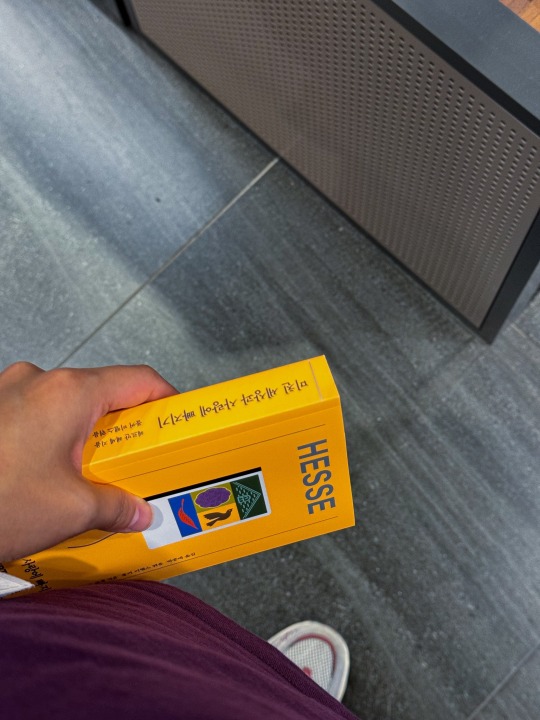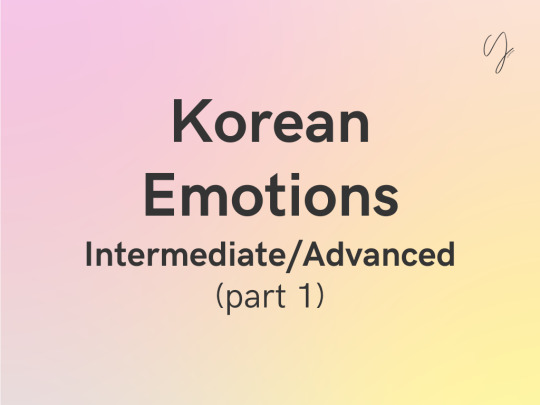#예
Text
hbd to wifey (1/6)
yeh shuhua (susan)










😊✨
18 notes
·
View notes
Text



₊˚⊹⋆ ☀︎ ₊˚⊹⋆ koi (20), she/her — 아아 (asian american), nsfw/nsft multifandom x fem!reader writing blog (19+, i am not responsible for your internet experience), self-indulgent at best, posts sporadically. this blog is also dark content friendly.
continue?
> 예.
> 아니요.

hi, please don’t steal my stuff. and if you like my stuff, lmk! if you don’t like my stuff… well that’s tuff (it’s what back and block buttons are for!). thanks for your support!
dni: you are 18 or under or do not have an age easily accessible on your pinned/desc; you fit basic dni criteria

divider cred @ cafekitsune
#aelilith#i know 아아 is used for iced americano but let me be funny ok#btw 예 = yes / 아니요 = no#saved tags:#tbr
0 notes
Text

Benny Gecko card redraw 예
#fallout#fallout new vegas#fnv#fanart#benny gecko#benny new vegas#benny fallout new vegas#benny fallout
709 notes
·
View notes
Text






[ … ]ㅤ俗語 ㅤ✿ㅤ˙ㅤ𝐬͟𝐮͟𝐞͟𝐧͟𝐨ㅤㅤฺㅤㅤིྀ
✿꯭𐧺ㅤ#𝖿𝖺𝗇𝗉𝖺𝗀𝖾 ㅤ🎥♡ ˙ㅤ注意深い
ㅤㅤㅤㅤ⏝︶୨୧︶⏝
ㅤ
ㅤ
🫙𖤓ㅤ˙ㅤ低俗語ㅤ[ … ] ㅤ𝟎͟𝟒͟𝟓 ✟ ˙ㅤ#𝖺𝗋𝗍
ㅤㅤ
𝖼𝖺𝗅𝗅ㅤㅤ𝗆𝖾ㅤㅤ,ㅤㅤ𝗒𝗈𝗎𝗋ㅤㅤ𝗇𝖺𝗆𝖾ㅤ!
http://⠀⠀𝟣.𝟨𝟫⠀⠀⠀ㅤ✿ㅤㅤ𝖺𝗅𝗈𝗇𝖾ㅤㅤ
𝗅𝗈𝗏𝖾𝗅𝗒 ✟ ˙ 예
✿ ˙ 俗語 ฺ ིྀ
⏝︶ ୨୧ ︶⏝
𝟎͟𝟒͟𝟓 ♡ ˙ 예
✿ ˙ 触る [ … ]
Conta nova : @desvencias

307 notes
·
View notes
Text

이거,지,예,
#kawaii#pink#kawaiicore#sanrio#sanriocore#cute#pinkcore#2000s#y2k#my melody#gyaru#lolita#egl#girlcore#girlblogging
105 notes
·
View notes
Text

이거,지,예, 🙂↕️🙂↕️
85 notes
·
View notes
Text

240717 RM’s Instagram Story
예..감사합니다..
Yes..thank you..
Picture Translation:
You have completed 40% of your service!🙂
Take a look at your Military Service Gauge
Trans cr; Aditi @ bts-trans
© TAKE OUT WITH FULL CREDITS
100 notes
·
View notes
Text







📖 넌 웃 는 게 더 예 뻐



#messy icons#messy layouts#messy moodboard#moodboard#aesthetic moodboard#girl blogger#girlblogging#kpop icons#kpop#kpop moodboard#pink moodboard#red moodboard#white moodboard
54 notes
·
View notes
Text
예? 제가 탐정을 괴롭힌다고요? 얘가 먼저 했어요

69 notes
·
View notes
Text

Lee Dong Sik: 가는 길에 저 좀 내려 주세요. / Drop me off on your way home.
Han Joo Won: 싫습니다. / I don't want to.
Saying 'nope' in a very polite tone.

Han Dong Soo: 제발, 예? 날 좀 놔줘요. / I beg of you. Please let me go.

Seo Do Young: 싫은데. / I don't want to.
Saying 'nope' in a very rude tone.
Young men these days 😮💨
96 notes
·
View notes
Text

인류애가 바닥을 치는 날에는 말이지요? 일단 말을 최대한 아끼고(좋은 말이 나갈리 없음)
조용히 서점으로 향해요. 그리고 아주 옛날옛적부터 존경받는 선생님들의 말씀을 새겨 읽습니다. 문학이든 철학이든 상관 없어요.
아주 본질적인 부분(나자신, 인간, 사랑, 행복 등..)에 의문점이 들거나 내 삶이 모호하게 느껴질 때는 인문, 철학이 많은 도움이 되고요.. 몇백년 전에도 나랑 같은 고민을 했었다니 하고 위로도 되고요(ㅋㅋ) 정확한 답을 얻지 못하더라도 문제에 대해 고민하다보면 자체적으로 정리가 되는 날이 오기도 하고요 예.. 그렇습니다.

실컷 읽다 나와 걸으며 좋아하는 여름맛 뭉게구름도 보고

건강하게 한끼 때우고 나면 다시 괜찮은 내일을 기대할 수 있게 된답니다~ Tada~ 🙂↔️~~
39 notes
·
View notes
Text
Korean Emotions (part 1)

가뜬하다 (adj.) : refreshed; light-hearted
몸이나 마음이 가볍고 상쾌하다.
Body or mind being light and refreshed.
예.) 가:너 오늘 기분이 굉장히 좋아 보인다?
나:과제를 다 끝냈더니 마음이 가뜬한 게 날아갈 것 같아.
가련하다 (adj.) : pitiful; poor; pathetic
마음이 아플 정도로 불쌍하다.
Sadly sick or troubled.
예.) 직장에서 해고를 당하고 집에서 놀고 있는 형이 매우 가련하다.
가소롭다 (adj.) : ridiculous; absurd
비웃고 무시할 만하다.
Deserving to be belittled and ignored.
예.) 형은 내 말을 형편없고 가소롭다는 듯이 들은 척도 안 했다.
가엾다 (adj.) : feeling pity
마음이 아플 정도로 불쌍하고 딱하다.
Feeling heartfelt pity or sympathy for someone.
예.) 나는 자식들을 먹여 살리느라 평생을 고생하신 어머니가 가엾게 느껴졌다.
가증스럽다 (adj.) : despicable; detestable
다른 사람의 말이나 행동이 화가 날 정도로 몹시 밉다.
Behavior or a remark being mean or hypocritical enough to upset others.
예.) 승규는 남들 앞에서만 착한 척하는 지수의 행동이 가증스러웠다.
가책 (n.) : admonishment; rebuke
자기나 남의 잘못을 꾸짖음.
The act of scolding oneself or others for doing something wrong.
예.) 나는 친구를 속이고 한동안 심한 죄책감과 가책에 시달렸다.
갈등하다 (v.) : be ambivalent
마음속에서 어떻게 할지 결정을 못 한 채 괴로워하다.
To experience agony and inner struggle over what to decide.
예.) 나는 시험 준비를 할까 좋아하는 드라마를 볼까 한참을 갈등했다.
감개 (n.) : deep emotion
지난 일이 생각나서 마음속에서 솟아오르는 감동이나 느낌.
One's state of feeling deeply moved and getting emotional from one's memory of past events.
예.) 작가는 몇 년 동안 고생하면서 쓴 소설이 출판된 것을 보고 깊은 감개에 젖었다.
감개무량하다 (adj.) : touched deeply; emotional
지난 일이 생각나서 마음속에서 느끼는 감동이 매우 크다.
Feeling deeply moved and getting emotional from one's memory of past events.
예.) 상을 받은 여배우는 감개무량한 표정으로 소감을 이야기했다.
감격하다 (v.) : be touched
마음에 깊이 느끼어 매우 감동하다.
To be deeply moved and touched by someone or something.
예.) 대회에서 일 등을 한 선수는 감격한 표정으로 소감을 말하였다.
감동하다 (v.) : be moved; be touched
강하게 느껴 마음이 움직이다.
To be touched by something very deeply.
예.) 나는 어려운 환경에서도 꿈을 잃지 않고 살아가는 청년의 이야기를 듣고 무척 감동했다.
감명 (n.) : impression
잊을 수 없는 큰 감동을 느낌. 또는 그런 감동.
A state of being deeply touched, or such a feeling.
예.) 지수는 가족의 사랑을 그린 영화를 보고 감명을 받아 눈물을 흘렸다.
감미롭다 (adj.) : mellow; sweet
달콤한 느낌이 있다.
A story, voice, song, etc., sounding sweet.
예.) 김 감독은 사랑에 빠진 남녀의 행복하고 감미로운 사랑 이야기를 영화로 만들었다.
감복하다 (v.) : be impressed; be moved
진심으로 크게 감동하다.
To be impressed deeply and sincerely.
예.) 공연이 끝난 후 관객들은 배우들의 훌륭한 연기에 감복해 박수를 쳤다.
감탄하다 (v.) : admire; wonder
마음속 깊이 크게 느끼다.
To feel strongly and deeply about something.
예.) 관객들은 서커스 단원의 공중 묘기에 감탄하여 박수를 쳤다.
감회 (n.) : reminiscence
마음속에 일어나는 지난 일에 대한 생각이나 느낌.
Thoughts or feelings on the past.
예.) 아버지는 돌아가신 할머니의 사진을 보며 감회에 젖으셨다.
개탄하다 (v.) : deplore; lament
분하거나 안타깝게 여겨 탄식하다.
To sigh at something out of anger or regret.
예.) 나는 경솔한 말 한마디로 사랑하는 여자를 떠나보낸 뒤 자신이 어리석었다고 개탄했다.
거부감 (n.) : sense of refusal
어떤 것을 받아들이고 싶지 않은 느낌.
The feeling of not wanting to accept something.
예.) 이 책은 고전을 청소년들의 눈높이에 알맞게 개작하여 그들이 거부감을 갖지 않고 쉽게 읽을 수 있다.
걱정하다 (v.) : worry; be worried; be concerned
좋지 않은 일이 있을까 봐 두려워하고 불안해하다.
To feel fearful and anxious that something bad might happen.
예.) 그는 다가올 시험에 대해 항상 걱정했다.
겁나다 (v.) : be afraid; be scared
무서워하거나 두려워하는 마음이 들다.
To feel afraid or scared of something.
예.) 나는 교통사고를 당한 이후 차 타는 것이 겁난다.
격노하다 (v.) : be furious; be enraged
몹시 화를 내다.
To be extremely angry.
예.) 강제로 해고된 직원들이 회사에 격노하여 복직을 요구하는 시위를 벌였다.
격분하다 (v.) : be furious; be enraged
몹시 화를 내다.
To be extremely angry.
예.) 사기 피해자들이 격분하여 사기꾼의 멱살을 잡고 분통을 터뜨렸다.
격정 (n.) : passion
강렬하고 갑자기 생기는 참기 어려운 감정.
A powerful, sudden burst of uncontrollable emotion.
예.) 나는 알 수 없는 격정으로 가슴이 꽉 막히는 것 같았다.
겸연쩍다 (adj.) : embarrassed; abashed; sheepish; awkward
쑥스럽거나 미안하여 어색하다.
Awkward due to being shy or sorry.
예.) 나는 짝사랑했던 그를 마주 대하기가 겸연쩍어 자리를 옮겼다.
sources:
KOR-EN Basic Korean Dictionary through Naver Dictionary. National Institute of Korean Language. Accessed 14 July 2024. <https://en.dict.naver.com/#/main>.
Park, In-Jo., & Min, Kyung-Hwan (2005). Making a List of Korean Emotion Terms and Exploring Dimensions Underlying Them. Korean Journal of Social and Personality Psychology, 19(1), 109-129.
#한국어#한국어 공부#공부계#한국어 공부하기#한국어 배우기#korean#learning korean#study korean#studyblr#new vocab#korean learning#learning#learn english#learnlanguages#learnsomethingneweveryday#english#english language#language stuff#korean vocabulary#korean language#korean english
21 notes
·
View notes
Text
Especial KRP — Sobrenomes Coreanos
Cansado de Lee? Kim? Seo? Song? Choi? Hwang? Park? Abaixo do "Read More" você vai encontrar alguns sobrenomes mais incomuns que pode usar em seus personagens coreanos.

Ah, A (아 - A)
Ae (애 - É)
Ban, Bahn, Van, Vahn, Pan, Pahn (반 - Ban)
Beon, Bun, Buhn, Veon, Vun, Vuhn (번 - Bón)
Beom, Bum, Buhm, Veom, Vum, Vuhm (범 - Bóm)
Bo, Vo (보 - Bô)
Bok, Vok (복 - Bôc)
Bong, Vong (봉 - Bông)
Boo, Bu, Voo, Vu (부 - Bú)
Bi, Vi, Bee, Vee (비 - Bi)
Bin, Been, Bean, Vin, Veen, Vean (빈 - Bin)
Bing, Beeng, Ving, Veeng (빙 - Bing)
Da (다 - Dá)
Dam (담 - Dam)
Dan (단 - Dan)
Dang (당 - Dang)
Dae, Dai (대 - Dé)
Dok, Dock (독 - Dôc)
Dokgo, Dokko (독고 - Docô)
Don (돈 - Dôn)
Dong (동 - Dông)
Dongbang (동방 - Dôngbâng)
Deung (등 - Dûng)
Deungjeong, Deungjung (등정 - Dûngdjóng)
Eogeum, Uhgeum, Ugeum (어금 - Ógûm)
Eun (은 - Ûn)
Eum (음 - Ûm)
Hak, Hahk (학 - Rác)
Hae (해 - Ré)
Hyeong, Hyung, Hyoung (형 - Rióng)
Ho, Hoh (호 - Rô)
Hwa, Hwah (화 - Ruá)
Hwangmok (황목 - Ruangmôk)
Hwangbo (황보 - Ruangbô)
Hoo, Hu (후 - Ru)
Ja, Jah (자 - Já)
Jeom, Jum (점 - Djóm)
Je, Jeh (제 - Djê)
Jegal, Jekal (제갈 - Djegál)
Jeo, Juh (저 - Djó)
Jong (종 - Djông)
Jwa, Joa, Jua (좌 - Djuá)
Jeung (증 - Jûng)
Kangjeon, Kangjun, Gangjeon, Gangjun (강전 - Gangdjón)
Ka, Ga (가 - Ga)
Kal, Gal (갈 - Gal)
Kam, Gam (감)
Kan, Gan (간 - Gan)
Kae, Gae (개 - Gué)
Kyun, Kyeon, Kyoun, Gyun, Gyeon, Gyoun (견 - Guión)
Kyung, Kyeong, Kyoung, Gyung, Gyeong, Gyoung (경 - Guióng)
Kye, Gye (계 - Guiê)
Kok, Gok (곡 - Gôc)
Kwan, Gwan (관 - Guân)
Kwok, Gwok (궉 - Guóc)
Kyo, Gyo (교 - Guiô)
Kuk, Guk, Kook, Gook, Kuck, Guck (국 - Guc)
Kung, Koong, Gung, Goong (궁 - Gung)
Kwok, Gwok, Kweok, Gweok (궉 - Guóc)
Keun, Geun (근 - Gûn)
Keum, Geum (금 - Gûm)
Ki, Gi, Kee, Gee (기 - Gui)
Kil, Gil (길 - Guil)
Lin, In, Rin, Leen, Een, Reen (인 - In)
Man, Mahn (만 - Man)
Mangjeol, Mangjul (망절 - Mangdjól)
Mae (매 - Mé)
Maeng (맹 - Méng)
Myung, Myeong, Myoung (명 - Mióng)
Mo, Moh (모 - Mô)
Mok, Mock (목 - Môc)
Myo (묘 - Miô)
Moo, Mu (무 - Mu)
Mubon, Moobon (무본 - Mubôn)
Muk, Muck, Mook, Moock (묵 - Muc)
Mi, Mee (미 - Mi)
Nan (난 - Nan)
Namgoong, Namgung, Namkoong, Namkung (남궁 - Namgung)
Nang (낭 - Nang)
Nae (내 - Né)
Noi, Nwe (뇌 - Nê)
Ok, Ock (옥 - Ôc)
On, Ohn (온 - Ôn)
Ong (옹 - Ông)
Pan, Pahn (판 - Pan)
Paeng (팽 - Péng)
Pyeon, Pyun, Pyuhn (편 - Pión)
Pyeong, Pyung, Pyuhng (평 - Pióng)
Po, Poh (포 - Pô)
Pyo (표 - Piô)
Pung, Poong (풍 - Pung)
Pi, Pee (피 - Pi)
Pil, Fil, Peel, Feel (필 - Pil)
Ra, La, Rah, Lah (라 - Lá)
Ran, Lan (란 - Lan)
Rang, Lang (랑 - Lang)
Ryeo, Ryuh, Lyeo, Lyuh (려 - Lió)
Roe, Loe, Roi, Loi, Rwe, Lwe (뢰 - Lê)
Sa, Sah (사 - Sá)
Sakong, Sagong (사공 - Sagông)
San, Sahn (산 - San)
Sam, Sahm (삼 - Sam)
Sang, Sahng (상 - Sang)
Seomun, Seomoon, Suhmun, Suhmoon, Sumun, Sumoon (서문 - Sómún)
Seonu, Seonwu, Seonwoo, Seonoo, Sunu, Sunwu, Sunwoo, Sunoo (선우 - Sónú)
Seob, Sub, Seop, Sup, Suhb, Suhp (섭 - Sób)
Sobong (소봉 - Sobông)
Soo, Su (수 - Su)
Sun, Soon (순 - Sun)
Seung (승 - Sûng)
Si, Shi, Xi, See, Shee, Xee (시 - Xi)
Tak, Tahk (탁 - Tác)
Tan, Tahn (탄 - Tan)
Tang, Tahng (탕 - Táng)
Tae (태 - Té)
Uh, Eo, Eoh (어 - Ó)
Wan, Wahn (완 - Uán)
Wang, Wahng (왕 - Uáng)
Wun, Un, Woon, Oon (운 - Un)
Wi (위 - Uí)
Ya, Yah (야 - Iá)
Yeop, Yeob, Yup, Yub, Yuhp, Yuhb (엽 - Iób)
Yeong, Young, Yung (영 - Ióng)
Ye, Yeh (예 - Iê)
Yo (요 - Iô)
Yong (용 - Iông)
Yook, Yuk (육 - Iúk)
29 notes
·
View notes
Text
Vocabulary, Hanja, & Charts Masterlist
Click here for the masterlist of all my lessons!
Vocabulary
Must-Know People
Must-Know Places
Must-Know Things
Must-Know Verbs
Must-Know Adjectives
Countries
Months, Days of the Week, and More
Clothing (옷)
School (학교)
Autumn (가을)
Autumn (w/Pictures!)
More Questions
House / Apartment (집 / 아파트)
Emotions / Feelings ( 감정)
Animals (동물)
Loan / Konglish Words
Food and Drink (먹을 것과 마실 것)
Parts of the Body (몸)
Counters
Modes of Transportation (교통 수단)
Colors (색깔)
Colors (with Pictures!)
Weather (날씨)
Winter (겨울)
Music & Instruments (음악과 악기)
Baking Gingerbread Cookies
Emergency (비상)
Hygiene & Bathroom (위생 & 화장실)
Indefinite Pronouns
Work / Office (일 / 사무실)
Spring (봄)
Coronavirus Prevention (코로나바이러스 방역)
How to Wash Your Hands (손을 씻기)
Time (시간)
Korean Cuisine (한식)
Summer (여름)
Summer (여름) w/Pictures!
Graduation (졸업)
Identity (독자성)
Korean Text Slang
Similar Words
Makeup w/Pictures! (화장품)
Family (with Pictures!)
Pronouns
How to Say “Still” and “Already” in Korean
Tastes & Textures (맛과 질감)
K-Pop Audition
K-Pop Fandom Terminology
Different Ways to Say “Change”
Flower Names
What Does 원래 Mean?
What does 오히려 Mean?
College
Hanja Lessons
최
수
악
식
급
동
부 & 불
애
출
퇴
예
음
중
학
습
연
생
대
입
인
문
감
과
원
특
만
후
무
Charts
Present, Past, and Future Tense
Question Words
잘 vs. 못 and Negative Conjugations
Future Tenses
-았/었던 vs. -던 (at end of lesson)
Particles
Some 받침 Rules
Gifving Commands
Conjunctions and -아/어/여서 vs. -(으)니까
-(으)면 vs. -다/라면 and Different Ways to Say “And”
How to Say “Or” (at end of lesson)
Telling Time (at end of lesson)
Comparatives and Superlatives
잘하다 & 못하다 vs. 잘 하다 & 못 하다 (at end of lesson)
Comparing 잘하다/못하다, 잘 하다/못 하다, & 수 있다/수 없다
Irregular Verbs
#korean#korean language#korean vocab#korean vocabulary#hanja#langblr#korean langblr#learn korean#learning korean#study korean#studying korean#korean lesson#korean resource#한국어#한국어 어휘#한자#한글#한국어 공부하기#한국어 배우기#한국어 레슨
317 notes
·
View notes
Text

⠀⠀⠀⠀⠀⠀⠀yeri messy bios !!
⠀⠀⠀𓈒𓏸⠀예⠀𓄼⠀림⠀ৎ୭⠀𓂃⠀金𓈒
⠀⠀⠀५ 김 ˒ dolce 𓈒⠀𓏸 🍫 예 ◠ 리 !
⠀⠀⠀𖥻 예 𓄹 y ٠ r : 金
⠀⠀⠀ ꣑୧ 𓈒 ۫ 김 ⊹ mi amour 𓂅 예리𓈒
⠀⠀⠀𓈒⠀𓏸⠀𓇼 y. r ֶָ֪ 𓈈 𝟿𝟿 🐚

#yeri#yerim#yeri bios#yeri locs#messy locs#messy bios#red velvet#red velvet bios#red velvet locs#red velvet yeri#rv yeri#rv yeri bios#rv yeri locs#red velvet yeri bios#kpop#kpop bios#kpop locs#kpop messy locs#twitter bios#twitter messy locs#twitter messy bios#girl groups bios
46 notes
·
View notes
Text
HOURS IN KOREAN.
2024년 8월 27일
안녕하세요 여러분!
Today, i’ll share how to say the time in Korean! First of all, we have to know how is the structure in korean for this.
TIME(에) + HOURS(에) + MINUTES(에) + SECONDS(에) + 이에요/예요.
Since we already know how to say hours + minutes + seconds, i’ll teach you how to say the time (morning/evening/night)
Morning (from sunrise till noon) = 아침/오전
Afternoon (from noon till nightfall) = 오후
Night (from nightfall to sunrise) = 밤/저년
As you can see, morning and night has two ways to say it, the one i use the most if the first one.
TIME PARTICLE -에.
What is the “에” thing? It’s a time particle that goes with some words (i’ll give you more later!) but not everytime! You have to learn which words goes with this time particle.
Before going further, the 에 must go at the end of the phrases everytime. As you can see in the structure i wrote above, every part has the 에 in parenthesis. You only have to put ONE time particle (에) on the sentence. Let me explain it with examples:
Examples:
TIME(에) + HOURS(에) + MINUTES(에) + SECONDS(에) + 이에요/예
It’s in the afternoon = 오후에 예요.
It’s 9 in the morning = 아침아홉시에 예요.
It’s 10:36 at night = 밤열시삼십육분에 에요.
It’s 5:14:45 in the afternoon = 오후다섯시십사분사십오초에 예요.
As you can see, 에 always falls further behind as we add more information to the sentence. I learned it thinking that they were Russian dolls (Matryoshkas): the more you open them, the smaller they get and the smallest one is where the 에 is.
Once you get it, it will be more easy to form sentences! So, I suggest that you write as many sentences you can with different times, to practice.
Next time, i’ll add more words that goes / doesn’t go with 에, since i don’t want to add a lot at the same time. See you soon!
#koreannook#korean langblr#korean language#korean learning#korean studyblr#koreanblr#langblr#learn korean#learning korean#study korean#studyblr#studying korean#korean hours#한국어#한국어 공부#한국어 배우기#한국어 공부하기
7 notes
·
View notes